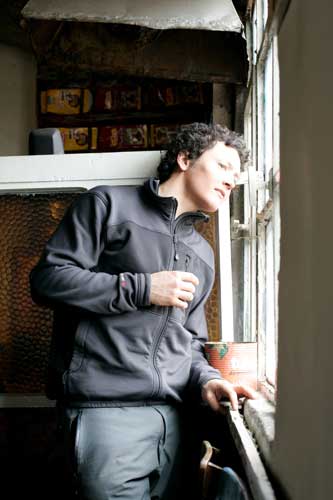First person: 'I survived a catastrophic avalanche'
Xavier De Le Rue, 29

Your support helps us to tell the story
From reproductive rights to climate change to Big Tech, The Independent is on the ground when the story is developing. Whether it's investigating the financials of Elon Musk's pro-Trump PAC or producing our latest documentary, 'The A Word', which shines a light on the American women fighting for reproductive rights, we know how important it is to parse out the facts from the messaging.
At such a critical moment in US history, we need reporters on the ground. Your donation allows us to keep sending journalists to speak to both sides of the story.
The Independent is trusted by Americans across the entire political spectrum. And unlike many other quality news outlets, we choose not to lock Americans out of our reporting and analysis with paywalls. We believe quality journalism should be available to everyone, paid for by those who can afford it.
Your support makes all the difference.Avalanches are a hazard of the job for snowboarders. They're not something you can prepare for, other than having the right equipment and mapping out an exit strategy. The smaller ones are not that uncommon, and a professional can usually deal with them quite easily. But then there are those so catastrophic that you'd never expect to survive, no matter how you reacted.
On 28 March this year, I was out on the slopes of Le Chatelet, near Verbier in Switzerland. As snowboarding free-riding world champion, I spend much of the winter season competing, and was looking forward to a rare break. On the second day into the break, my skiing counterpart and I were out with a camera crew, filming descents. This is a big part of what I do, for sponsorship and for snowboarding films, so it started as a pretty regular day.
It had been snowing a lot in the days preceding this descent, so I was taking things slowly at the beginning. But then things were going well, so I started being less and less careful. Stupidly, I hadn't checked out my exit in case of a slab of snow breaking off – a pretty common occurrence. With the skill we have, in these situations we try just to carry on, move out of the way, without getting hurt.
It started as a pretty localised affair; the slab of snow was crashing down the mountainside about 10 metres behind me. It was nothing major, so I wasn't concerned. I was ahead of the slide and moved sideways to escape it. Suddenly, it was all around me, for 50 metres on either side. Thankfully, I'd started using a rucksack with an airbag mechanism days before. This undoubtedly saved my life. I was floating on a sea of snow – like a small insect on a huge wave. All I could do was pull the trigger and hope for the best.
It happened so quickly that there was no time to think what was going on. My mind moved to my wife and two-year-old daughter. A big warning light blinked in my head, and then I was back in the tsunami. The impact of the fall knocked me unconscious, and I was pulled two kilometres down the mountain in less than a minute. I remember the feeling of being dragged downwards, and then a blur.
I was transferred to the hospital after my friends found me at the bottom of the slope. I was in a state of shock; it was a few hours before I could think normally. There were brain scans and all sorts of tests, but in fact I only had a twisted ligament in my knee and I was concussed for a few hours.
Since the fall, people have spoken of my survival as something of a miracle, as if something had protected me. It shouldn't be possible to survive a thing like this. Some people might think it is reckless for me to get back on the slopes, but after three months, that's what I did. After wrestling with my conscience, it became clear: this is my biggest passion so it can't be stupid to keep going, it would be stupid not to. I simply have to adjust a few things.
To watch a video of Xavier's extraordinary escape visit independent.co.uk/people
Join our commenting forum
Join thought-provoking conversations, follow other Independent readers and see their replies
Comments